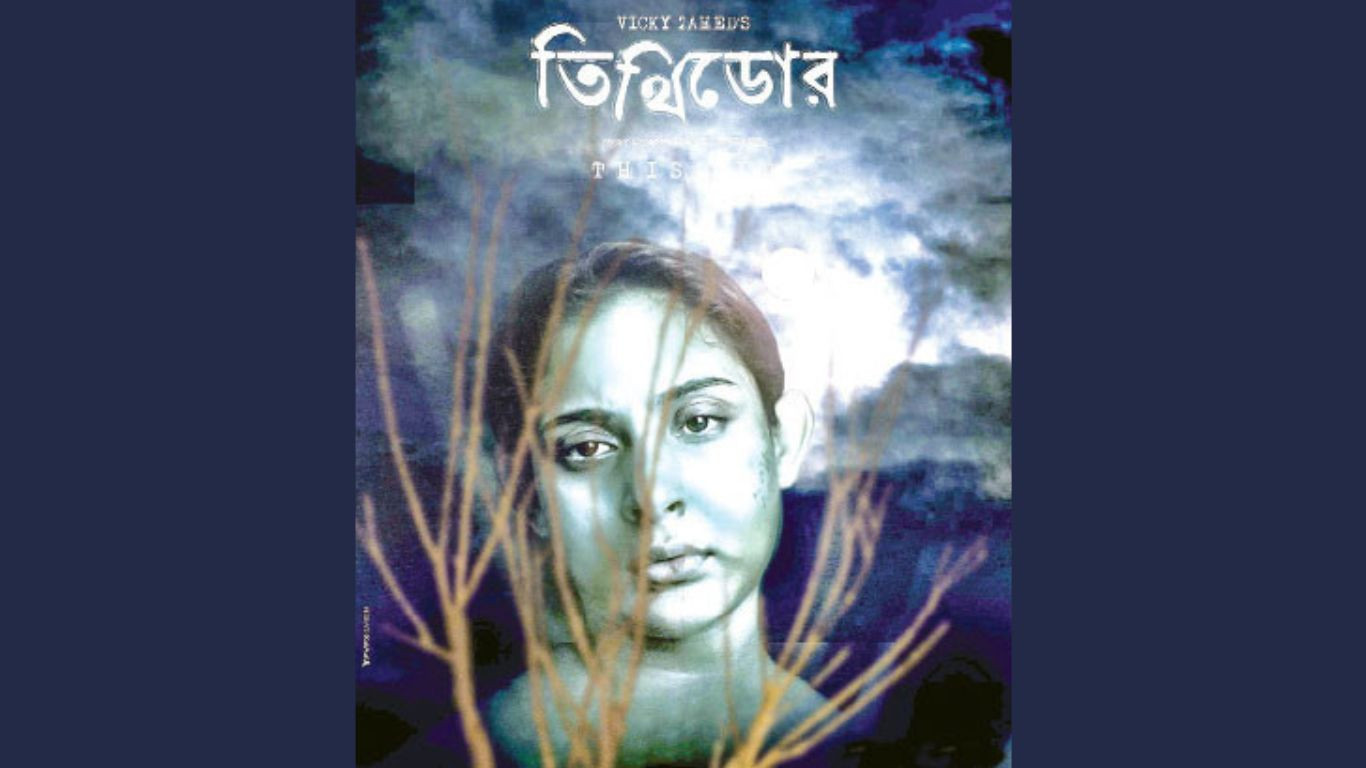Drama Review
Tithidor: From self-denial to self-acceptance
Jainab Tabassum Banu Sonali
Published: 25 Jun 2024

I diligently follow various YouTube channels to indulge in Bangladeshi Eid dramas and telefilms. Recently, I watched a telefilm on “Channel I Prime” that profoundly moved me, evoking tears, laughter, and smiles throughout its 1 hour and 15-minute duration and kept lingering in my emotions till now. This experience compelled me to pen a review of “Tithidor” which was telecast on Channel I on 20 June, and later posted on Channel I Prime. “Tithidor” is a story of a woman named Nishat who initially perceives herself as a “thirty years old single woman, the most useless person in the world”. Starring the heartthrob actress Mehazabin Chowdhury as a protagonist, who shares screens with the talented Prantar Dastider and the legendary actor Abul Hayat, “Tithidor” is written by my favourite screenwriter Jahan Sultana and directed by the extremely talented director Vicky Zahed.
The drama opens with a platoniromantic scene between a young man, Dhrubo, and a woman, Nishat, who appear to be in love. The moment turns tense when Nishat insists on marriage, and Dhrubo responds by throwing a hot cup of tea in her face. In that instant, Nishat awakens from her nightmare. The flawless transition from dream to reality shattered the idealistic concept of love and brought the harsh reality into the frame: Nishat, a middle-aged woman, who “is too weak to live and too scared to die”, contemplates suicide. But why? My tension rose high, compelling me to continue watching the drama.
Nishat gazes at herself in the mirror and smiles at her reflection. However, as she notices her scars, stretch marks, and gray hair, her smile fades, and she begins to sob and shed tears at her insecurities. The voiceover says, “welcome to terrible thirty”. I crossed 30 a few years ago. It did not seem terrible and depressing to me as Nishat does. Suddenly, I checked my feelings and reminded myself to be empathetic—to truly listen to her story, to feel what she is going through, and to accept that life unfolds differently for everyone in its own unique ways.
As I shifted my perspective, Nishat became very familiar to me. I know her! I have seen many Nishats around me, but I had never fully realised the torments they endure on a regular basis. Nishat wants to get rid of her suicidal thoughts but cannot. She immensely suffers from a sense of worthlessness and unwantedness. She is betrayed by her beloved Dhrubo who cheats on her with his colleague. She lost interest and trust in marriage and love due to the betrayal. A 9-year-old Diba calls her “auntie” which reminds her of her growing age. She is even rejected by a potential suitor’s family for the same reason. She is wrapped in layers of depression.
Nishat finally breaks into tears and delivers her heartbreaking monologue to her parents. To me, that is the turning point of the story. Though Nishat still attempts to commit suicide, the conversation sets the stage for her to listen to her own voice. In Freudian terms, this is called the “talking cure.” Can women like Nishat around us express their thoughts? Can they hear their own voices? Even as she is about to hang herself, her inner voice continuously speaks to her: “I want to live!” The voiceover is profoundly powerful, and she finally hears it!
When Diba dies of leukemia, Nishat finds more reasons to live! She finds an old man feeding bread to two dogs and rushes to him. She asks Shamsur Rahman, portrayed by Abul Hayat, what aging signifies to him. He smilingly says that every age has its own beauty. He shows her a book The subtle art of not giving a f*ck and tells her that she never needs to be ashamed of her tears. A couple of years ago, I read this wonderful book. The writer of the book Manson writes, “Who you are is defined by what you’re willing to struggle for”.
Eventually, she discovers self-love. Although she remains single, she no longer feels lonely. Her best companion now is herself, a companion who continues to love and appreciate her for enduring and overcoming depression. The drama concludes on a hopeful note: suicide is not an option. Life is more powerful than the pains it endures.
I am a big Jahan Sultana fan! I think this is one of her best works so far. Her potential as a writer heightens her responsibility towards her viewers and fans. On behalf of all who resonate with “Tithidor”, I extend my gratitude to Jahan Sultana for crafting this beautiful story, to Vicky Zahed for bringing it to life so wonderfully, and to Mehazabien Chowdhury for maintaining her reign as the queen of hearts through her exceptional acting and natural presence on screen. No one could play Nishat as Mehazabien has done. The whole team took part in the meaning making process of the story. Every single frame adds meaning to the whole plot. Kudos to the team!
_____________________________
The writer is a PhD student in Rhetoric, Writing and Culture and Graduate Teaching Assistant, Department of English, North Dakota State University.

